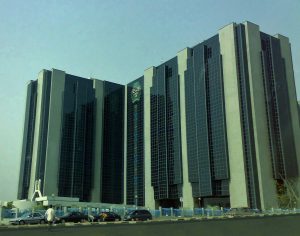
By David Akinmola
The National Pension Commission (PenCom) has rolled out a sweeping reform blueprint tagged Pension Revolution 2.0, a strategy designed to overhaul Nigeria’s pension landscape, expand coverage to millions of workers, and position the sector as a key driver of national economic transformation.
Unveiled in Abuja on Tuesday, the initiative marks the most ambitious shift since the introduction of the Contributory Pension Scheme (CPS) in 2004. It aims to leverage digital innovation, deepen informal sector participation, and align pension operations with global standards, while mobilising long-term funds for critical infrastructure and development projects.
A New Era for Pensions
Speaking at the launch, PenCom’s Director-General, Aisha Dahir-Umar, said Pension Revolution 2.0 is built on four pillars: expanding micro-pension enrolment, strengthening compliance and enforcement, enhancing digital adoption for efficiency, and fostering sustainable investment practices.
“This is about taking the pension industry into its next phase of growth,” she stated. “We are building on the successes of the last two decades, but with a renewed focus on coverage, innovation, and the use of pension assets to power Nigeria’s economic development while safeguarding contributors’ benefits.”
Since the enactment of the Pension Reform Act in 2004 and its amendment in 2014, the industry has grown from a mere ₦265 billion in assets to more than ₦20 trillion as at June 2025. Yet, penetration remains shallow — less than 15 per cent of Nigeria’s 70 million-strong workforce is enrolled in the CPS, leaving millions, particularly in the informal sector, without retirement security.
Targeting the Informal Sector
A central plank of Pension Revolution 2.0 is the aggressive expansion of the Micro Pension Plan (MPP), introduced in 2019 but yet to gain significant traction. Official data show fewer than 100,000 micro-pension contributors as of mid-2025, despite Nigeria’s estimated 45 million informal sector workers.
PenCom says the new framework will deploy simplified digital onboarding, mobile payment solutions, and partnerships with trade associations, cooperatives, and fintech firms to drive adoption.
“The informal sector is too critical to be ignored,” Dahir-Umar stressed. “Our goal is to ensure that artisans, market women, transport operators, and other self-employed Nigerians can retire with dignity under a system that works for them.”
Strengthening Compliance and Enforcement
Beyond expansion, PenCom plans to tighten compliance among employers in both the public and private sectors. Reports show that many firms still default in remitting workers’ contributions, while some states lag in implementing the CPS despite the 2014 reform law making it mandatory.
Industry observers say stricter enforcement is needed to restore trust and prevent abuse. “Compliance is the lifeblood of any pension system,” said Dr. Chijioke Onyekwelu, a pensions consultant. “Without it, workers lose confidence, and the integrity of the entire system is threatened.”
PenCom disclosed that under Pension Revolution 2.0, it will intensify the use of technology for real-time monitoring of remittances, expand its recovery agent scheme to recoup unremitted funds, and sanction erring employers.
Driving Digital Transformation
The initiative also places digital adoption at the heart of pension operations. Already, PenCom has introduced the Enhanced Contributor Registration System (ECRS), enabling workers to update their data seamlessly. Under the new strategy, the Commission will scale up e-platforms for account opening, transfers between Pension Fund Administrators (PFAs), and benefit applications.
This, analysts say, will boost efficiency and transparency, reduce paperwork bottlenecks, and align Nigeria’s pension system with global best practices.
“Digitalisation is a win-win — it lowers costs for PFAs, improves service for contributors, and enhances transparency for regulators,” said Olufemi Ayo, a financial analyst.
Pension Assets and Economic Growth
With pension assets now standing at about ₦20 trillion — equivalent to roughly 12 per cent of Nigeria’s GDP — PenCom is also seeking ways to channel funds into productive investments.
Currently, more than 60 per cent of pension funds are invested in government securities, with relatively little exposure to infrastructure, housing, or private equity. Pension Revolution 2.0 aims to balance safety with impact, encouraging PFAs to explore new asset classes within regulatory limits.
Dahir-Umar noted that pensions could play a “catalytic role” in financing infrastructure and supporting Nigeria’s vision of building a $1 trillion economy by 2030. However, she stressed that contributors’ funds will remain secure, with any new investment guided by strict risk management frameworks.
Industry Reactions
The launch of Pension Revolution 2.0 has been welcomed by industry stakeholders who believe it could be a turning point for the sector.
“This is long overdue,” said Funmi Akinlade, CEO of a leading Pension Fund Administrator. “The industry has grown in numbers, but penetration is still too low. If this initiative succeeds in pulling millions of informal workers into the net, it will transform not just pensions but the broader financial system.”
Others highlight the potential to deepen capital markets. “Long-term pension funds are critical for providing stability to our financial markets,” said Temi Banwo, an investment banker. “A more diversified pension portfolio can boost private sector funding and reduce over-reliance on government securities.”
The Road Ahead
Despite optimism, challenges remain. Limited financial literacy, weak enforcement in some states, and persistent mistrust in formal financial systems could slow adoption. Analysts caution that unless PenCom aggressively drives awareness and ensures transparency, Pension Revolution 2.0 may face the same hurdles as previous reforms.
For contributors like 34-year-old tailor, Chinyere Nwosu, the micro-pension holds promise but requires better communication. “I heard about it two years ago, but I didn’t understand how it works,” she said. “If they can explain it well and make it easy to save small amounts, I will join.”
Looking Forward
As Nigeria grapples with economic volatility, high inflation, and rising unemployment, securing retirement income has become more urgent than ever. Experts say a well-functioning pension system not only guarantees dignity for retirees but also provides the patient capital needed for national development.
With Pension Revolution 2.0, PenCom is betting that a modernised, inclusive, and digitally driven pension system can deliver both. If successfully implemented, it could transform the lives of millions of Nigerians, strengthen the financial system, and cement the pension sector as a cornerstone of economic growth.





